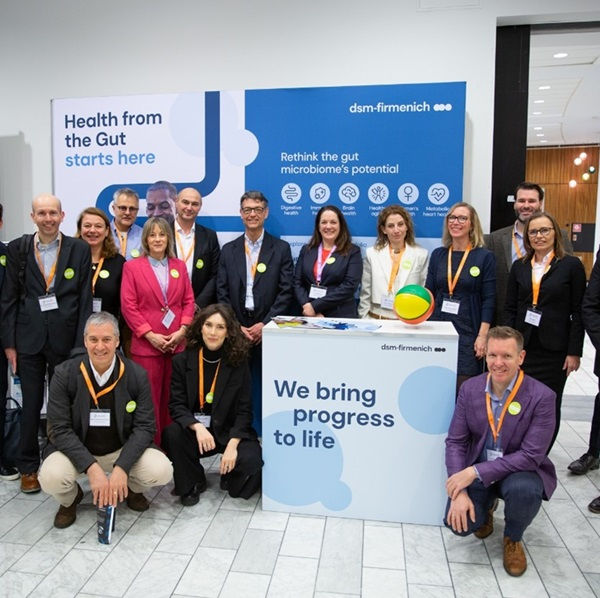News
November 20, 2020
Ask-the-Expert: What You Need to Know About Vitamin D and Immune Health
In this ask-the-expert interview, we look at how vitamin D helps to support a more resilient immune system, why the ‘sunshine vitamin’ is attracting growing attention and what dietary supplement manufacturers can do to help improve the generally low vitamin D status worldwide.

- Vitamin D is well-known for its role in supporting bone and muscle health. But as the world looks for new ways to face COVID-19, vitamin D is attracting increasing interest for how it can help support the immune system and the body’s response against respiratory viruses.
- However, there are a number of challenges preventing people across the world from achieving an adequate vitamin D status in the blood to help ensure optimal immune function, offering an opportunity for innovation experts to develop nutritional solutions that support consumers’ health.
- In this ask-the-expert interview, we look at how vitamin D helps to support a more resilient immune system, why the ‘sunshine vitamin’ is attracting growing attention and what food and dietary supplement manufacturers can do to help improve the generally low vitamin D status worldwide.
What role does vitamin D play in supporting the immune system?
The immune system is our ‘always on’ defense system, continuously carrying out surveillance to protect us from infections. Upon exposure to a pathogen, the immune system defends the body from harm via a two-pronged approach: innate immunity and adaptive (or acquired) immunity.
As Dr. Bruins explains, innate immunity is the immunity that humans are born with, consisting of physical barriers that protect the body from pathogen invasion and first line of cellular defenses that recognize and remove immediate infectious threats. Throughout life, we also acquire a second line of defense, the adaptive immune system.
Hear from Dr. Maaike Bruins, Lead Nutrition Scientist at dsm-firmenich, as she discusses the role of vitamin D in optimizing immunity throughout life and how innovation can help overcome challenges to ensuring adequate vitamin D status worldwide.
The adaptive, or acquired, immune response is slower than the innate response (days to weeks); however, adaptive immunity is more specific towards eliminating pathogens and has memory. The adaptive immunity comprises specialized white blood cells – namely T and B lymphocytes. These work together to identify and destroy infected host cells through the production of antibodies that travel through the bloodstream and bind to the invader, flagging the invader for destruction by immune cells. Vitally, the adaptive immune system that learns from new acquired infections, generates ‘memory cells’, which enables a fast-adaptive response if the body is re-infected by the same pathogen.
Vitamin D plays an essential role in both the innate and adaptive immune functions. Research has shown that vitamin D is involved in the response to infections/pathogens1,2,3 and can support production of antimicrobial peptides and support dampening the overactivation of the immune response to prevent its potentially damaging effects.4 Human studies have shown that vitamin D also reduces the likelihood of acute respiratory tract infections.5
Sunshine vitamin in the spotlight
The COVID-19 pandemic has led to increased attention from scientists, governments, and consumers on the role of vitamin D in helping to prevent infection and support immune response. Research undertaken before the beginning of the crisis has suggested that vitamin D supplementation could help to lower the risk of acute respiratory tract infections. Emerging evidence demonstrates a link between low vitamin D status and COVID-19 infection, which has triggered widespread interest. Dr. Bruins specifically references two studies that offer emerging evidence on the link between vitamin D status and COVID-19.
The first study, performed across 20 European countries, evaluates the correlation between vitamin D levels with COVID-19 cases and deaths, and found that a lower vitamin D status increased an individual’s chance of infection.6 More information about the second study cited by Dr. Bruins, which explores the association between vitamin D status and SARS-Cov-2 test positivity in nearly 200,000 US patients,7 will be discussed in our next science blog featuring expert insights from Dr. Adrian Gombart, whose research specializes on understanding how vitamin D impacts immunity.
Ensuring optimal intake
As we are exposed to less sunlight – whether as a result of seasonal or lifestyle changes – and few foods offer a sufficient source of the vitamin, it’s perhaps little surprise that populations across the globe suffer from vitamin D deficiency. In fact, it is estimated that 88% of individuals worldwide have insufficient vitamin D status.8
But as Dr. Bruins explains, there are various nutritional solutions available to improve vitamin D status to help people worldwide optimize their immunity. Fortifying staple foods such as milk and bread can offer a reliable source of the sunshine vitamin to recover insufficient levels, as well taking vitamin D supplements daily.
Continuous research and insights are also essential to improving global vitamin D status; helping food and dietary supplement manufacturers understand needs, challenges and trends that can inspire the creation of innovative and appealing solutions. This takes more than an ingredients provider. This takes a partner. As an end-to-end, purpose-led partner, dsm-firmenich takes a human-centric approach, pouring all of our curiosity, insights and innovation into every stage of the product development lifecycle. dsm-firmenich’s broad portfolio of science-backed products, customized solutions and expert services can mean the difference between
Let's connect
Contact us to partner and discuss innovation opportunities for purpose-led solutions that address consumer concerns around immune health.
References
- Gombart. The vitamin D–antimicrobial peptide pathway and its role in protection against infection. Future Microbiol., vol. 4, no. 9, pg. 1151, 2009.
- Greiller and Martineau. Modulation of the immune response to respiratory viruses by vitamin D. Nutrients, vol. 7, no. 6, pg. 4240-4270, 2015.
- Steinstraesser et al. Inhibition of early steps in the lentiviral replication cycle by cathelicidin host defense peptides. Retrovirology, vol. 2, no. 2, 2005.
- Grant et al. Evidence that Vitamin D Supplementation Could Reduce Risk of Influenza and COVID-19 Infections and Deaths. Nutrients, vol. 12, no. 4, pg. 988, 2020.
- Martineau AR, Jolliffe DA, Greenberg L, Aloia JF, Bergman P, Dubnov-Raz G, Esposito S, Ganmaa D, Ginde AA, Goodall EC, Grant CC, Janssens W, Jensen ME, Kerley CP, Laaksi I, Manaseki-Holland S, Mauger D, Murdoch DR, Neale R, Rees JR, Simpson S, Stelmach I, Trilok Kumar G, Urashima M, Camargo CA, Griffiths CJ, Hooper RL. Vitamin D supplementation to prevent acute respiratory infections: individual participant data meta-analysis. Health Technol Assess. 2019 Jan;23(2):1-44. doi: 10.3310/hta23020. PMID: 30675873; PMCID: PMC6369419.
- Ilie, P.C.; Stefanescu, S.; Smith, L. The role of vitamin D in the prevention of coronavirus disease 2019 infection and mortality. Aging Clin Exp Res 2020, 32, 1195-1198..
- Kaufman. SARS-CoV-2 positivity rates associated with circulating 25-hydroxyvitamin D levels. PLosOne, 2020.
- Hilger et al. A systematic review of vitamin D status in populations worldwide. Br J Nutr., vol. 111, no. 1, pg. 23-45, 2014.
Related Content
Recommended Reading
Quick links
Customized blends of functional ingredients in one single, efficient premix.
Streamline your product development process and get to market faster.
From trade shows to conferences and other industry events, find out where you can meet us next.
Talking Nutrition, Health & Care
Explore new science, consumer insights, industry news and more in our latest articles.
Discover educational whitepapers, webinars, publications and technical information.
Request samples, place orders and view product documentation.



